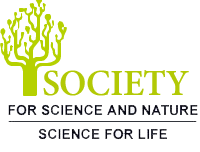1Nagpur College of Pharmacy, Wanadongri, Hingna Road, Nagpur
2Lata Medical and Research Foundation, Vasant Nagar, Nagpur
3Datta Meghe Medical Sciences, Shalinitai Meghe Hospital and
Research Centre, Wanadongri, Nagpur, India
4Deprtment of Microbiology Jawaharlal Nehru Medical College, Datta
Meghe Institute of Medical Sciences Sawangi (Meghe) Wardha
Article Publishing History
Received: 25/03/2021
Accepted After Revision: 29/05/2021
Around 7% of pregnancies suffered with the Gestational Diabetes Mellitus (GDM), this number may vary considerably depending upon the demographic characteristics of population. GDM increases risk to offspring like obesity and type II DM, hypothesis suggest that epigenetic changes has an effect of GDM on offspring and could provide an a data to reduce such risk in next generation. Epigenetics involves the group of molecular mechanisms which includes DNA methylation, modification on histone (methylation, acetylation, crotonylation, Ubiquitination and phosphorylation) and miRNA.DNA methylation could be considered an interesting diagnostic and prognostic marker. But due to limited sample size; and lacking in study the markers with maternal and/or neonatal, the specified outcomes cannot be correlated, more research is needed, furthermore different methods to measure DNA methylation have been utilized. In DNA methylation mainly genes like PDX1 (pancreatic and duodenal homeobox 1), PPARGC1A (Peroxisome proliferator-activated receptor gamma coactivator 1-alpha, GLP1-R played important role.Further GDM is characterized by insulin resistance like in type II DM and various genes are associated with it. Some genes involved in GDM while some are known as inflammatory pathway and involved with maternal metabolism. The IRS1, IGF2BP2, CDKAL1, GCK, TCF7L2, MTNR1B, KCNJ11, KCNQ1, GCKR, HNF4A, SLC30AB, PPARG and FTO are the genes involved in GDM while LEPR, IL8, TNFα, IL6, ADIPOR2, RETN are associated with maternal metabolism the inflammatory pathway gene. The epigenetic and genetic data is important and for that the specific and unique gene to be analyzed and research is needed to limit the number so that diagnosis and screening will be easy and it will provide a better intervention in GDM.


